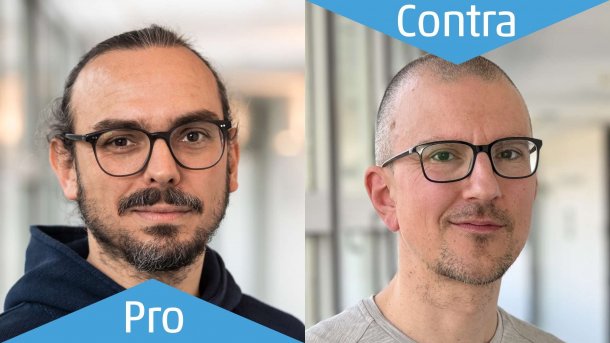Pros & cons: Do we need Photoshop from Apple?
Apple wants to buy the popular Photoshop alternative Pixelmator. But is this unexpected takeover a good thing?

(Image: Mac & i)
The previously independent development team behind the popular Photoshop alternative Pixelmator Pro will soon be working for Apple, according to the company. The takeover has already been signed and sealed, as the developers surprisingly announced – unless a regulatory authority torpedoes the purchase. Apple has not yet made any concrete statements on this, and the fate of the two apps Pixelmator Pro and Photomator is uncertain.
PRO
If I want to edit my videos, I can use iMovie and Final Cut, depending on my requirements. For audio editing and composing, there is GarageBand or Logic. For pictures, however, I quickly reach the limits of the Photos app. I can't even paint into the picture with simple brushes as I once could in MacPaint – Microsoft Paint for Windows can now even handle layers.
A genuine image editor would be a good fit for the Mac. According to Apple, it's the ideal device for creative minds. At the moment, I need a third-party program for even the simplest tasks. Pixelmator Pro has established itself as a great and, above all, inexpensive solution. The program is much more intuitive to use than Photoshop, for example. Thanks to its perfect integration into macOS, it already looks as if it came from Apple.
Videos by heise
If Pixelmator becomes part of macOS and other systems in the future, this will certainly shake up the market. Indie programs such as Acorn or PhotoLine in particular will then find it even harder to find customers. They will therefore have to come up with something to maintain their position. GarageBand and iMovie, which have not swept everything off the market, indirectly prove that this can be achieved. And Apple will certainly not make heavyweights such as Photoshop or Affinity Photo superfluous.
If Apple were to kill off the independent app and throw the proven concept, the automation capabilities or even the file format overboard, existing customers would be left behind. However, the resulting niche can be filled by a new team of developers – then there will be a Pixelmator Neo. (wre)
CONTRA
When Apple acquired the two major professional applications Final Cut and Logic over 20 years ago, the company was still a tiny PC manufacturer. The apps were intended to keep the core customer base happy and the platform, which was threatened by Windows dominance, alive. This is no longer the case today: Apple has mutated into a Godzilla that can shake up entire ecosystems with even small movements. This is why the surprising announcement that the Pixelmator team is to be swallowed up leaves me feeling extremely uneasy.
Apple's takeover sends a dangerous signal: it could deter smaller development teams from building exciting professional software for the Mac in the long term. A total economic loss is inevitable if the competition is suddenly called Apple and has incredibly deep pockets –, making it almost impossible to compete. This leaves only teams of developers who have been given venture capital and whose only goal is to be swallowed up by the big platform operator. This leaves less and less room for indie developers, whose fantastic apps have always set macOS far apart from other operating systems. It is also frustrating for users when tried-and-tested apps are made worse or even disappear completely after a takeover.
Instead of poaching in its own software market through such acquisitions, Apple should continue to focus on creating the best possible basis for great software with its operating system and flexible interfaces. This is exactly what enables even small development teams to offer powerful tools for the Mac – such as Pixelmator Pro. (lbe) (lbe)